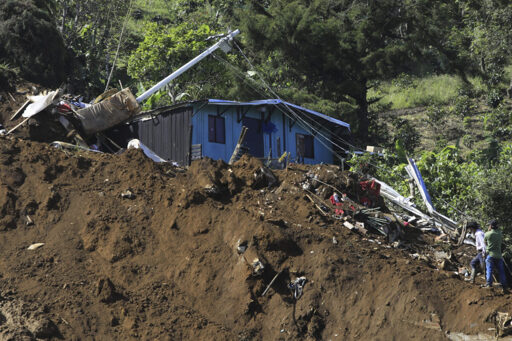Heavy rainfall in Colombia and Venezuela caused deadly landslides and widespread flooding in June. A new analysis now points to rapid urbanization, deforestation, mining and overgrazing as having reduced the region’s climate resilience. “The rapid growth of population and informal settlements in areas prone to landslides, particularly in Colombia, puts people and infrastructure at risk,” the World Weather Attribution (WWA), a network of scientists evaluating extreme weather events, said in its latest rapid analysis. It said the informal communities are growing as people seek livelihoods in cities or are displaced due to conflict. Roop Singh, report co-author from the Netherlands-based Red Cross Red Crescent Climate Centre, said at a media briefing that pasture- and agriculture-driven deforestation rose over the past two decades, increasing “the risk of landslides because tree roots are no longer binding and anchoring the soils.” The heavy rains during the last week of June triggered widespread flooding and damage in Colombia; a landslide in Antioquia department killed 27 people. In Venezuela, rivers overflowed, and smaller landslides cut off rural communities. WWA said in its report that rains in these regions had persisted since April, and that the June rain fell on already saturated ground where the deadly landslide occurred, and in rivers with already high levels of water. The scientists examined the total rainfall from April-June this year over the Magdalena River catchment in Colombia and the Falcón and Maracaibo basins in Venezuela. They also studied data on the accumulated rainfall from June 20-24 in the affected…This article was originally published on Mongabay
From Conservation news via this RSS feed


